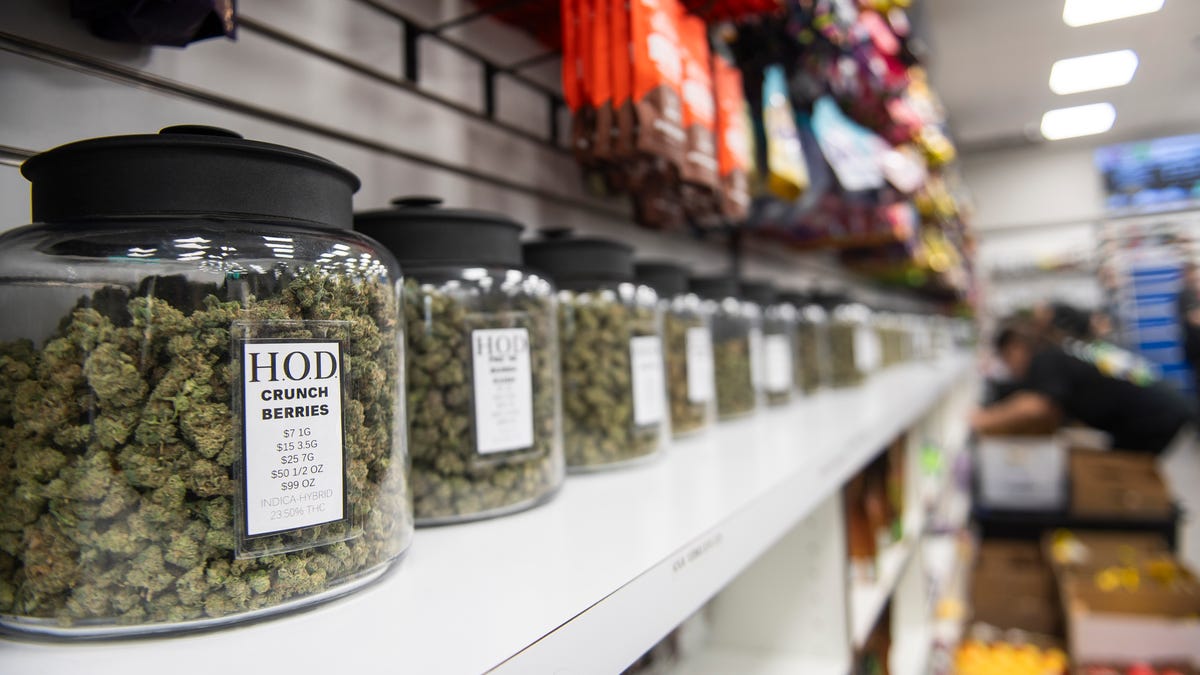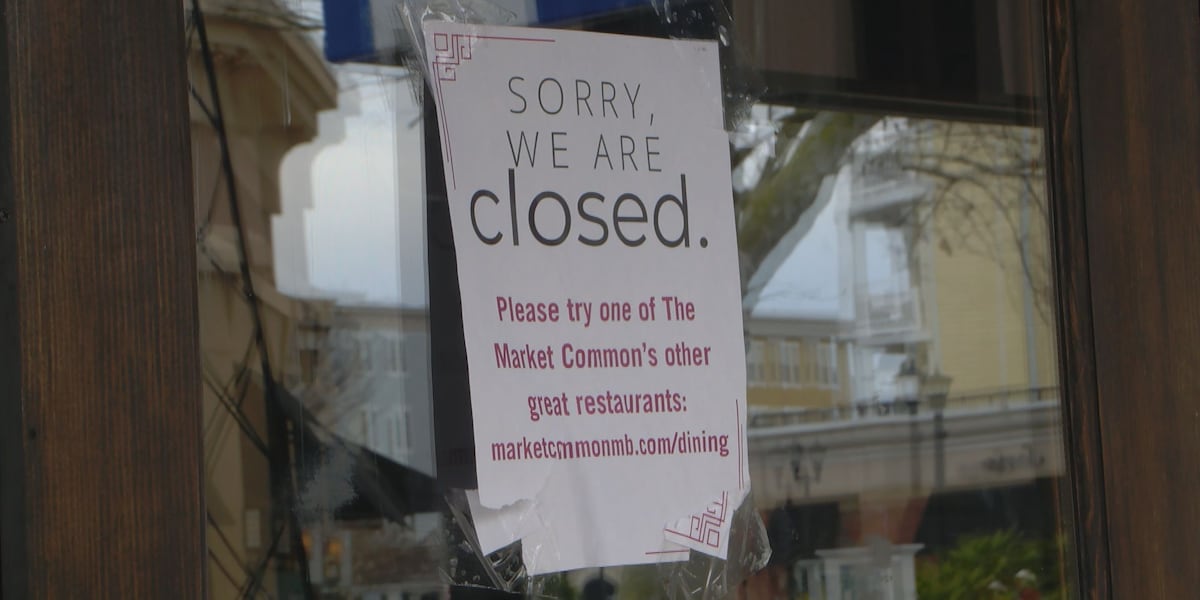Lansing — Michigan marijuana industry experts are warning of dire consequences for the market if a 24% wholesale tax is signed into law, arguing it could “decimate” businesses currently struggling with oversaturation and declining price points.
The tax, approved 78-21 by the Republican-led Michigan House Thursday, would kick Michigan’s marijuana tax rate out from among the states with the lowest marijuana tax rates and push it up the ladder of states levying pot for big cash. Roughly 39,000 people are employed in the marijuana industry in Michigan, according to state records.
The tax hike is a key piece of a long-sought road funding deal and critical to a budget agreement being negotiated to avoid a government shutdown Wednesday. The wholesale tax on marijuana, a gas tax revenue swap and spending cuts to some state departments are expected to generate between $1.5 billion and $1.8 billion in additional road funding annually.
The bill moves to the Democratic-led Senate next for approval.
Mike DiLaura, chief of corporate operations for House of Dank, said an early analysis indicated the tax increase would reduce the marijuana market in Michigan by about $800 million, or about 25%. The tax hike will eradicate advantages Michigan has over other states, which have previously led customers to come to Michigan to buy marijuana, he said.
“It’s going to decimate the industry in Michigan,” DiLaura said.
At least one attorney specializing in marijuana also questioned the threshold by which the bill passed the House and said she and her colleagues were reviewing whether the bill required a three-quarters vote for passage.
The tax was first proposed by Gov. Gretchen Whitmer earlier this year, when the Democrat advocated for a wholesale tax rate on marijuana similar to what is already levied on tobacco products. The wholesale tax on tobacco is 32%.
The House’s version was introduced roughly nine days before it was voted on and did not receive a single committee hearing prior to its Thursday passage.
House Speaker Matt Hall touted the fact that the 24% total was much lower than what is levied on tobacco.
“We thought the 32% tax the Democrats were proposing for marijuana, on the wholesale value, was too much,” the Richland Township Republican said. “And we were concerned about how that might affect the industry. We want to have an industry. Voters have said it’s legal.”
State Rep. Alabas Farhat, D-Dearborn, argued the effect of the tax on marijuana businesses has been exaggerated.
“Every time I drive on the highway, all I see is these billboards everywhere, so I don’t think they’re doing as bad as they say they’re doing, if we’re being honest,” Farhat said.
But state Sen. Jeff Irwin, D-Ann Arbor, said Michigan currently has a reasonable tax on marijuana that signals to consumers that the regulated stores are a rational place to buy cannabis. Hiking the tax would send people back to the illicit market, he said.
“My main frustration is that it is a huge benefit to illegal drug dealers,” Irwin said.
The pot tax
Under a 2018 ballot initiative, Michigan voters legalized marijuana and imposed an excise tax of 10% that is charged at the point of sale at marijuana retail stores across the state.
About 56% of voters — or 2.3 million — supported the measure.
In order to amend the Michigan Regulation and Taxation of Marijuana Act and levy more taxes, the Legislature would need a three-quarters majority in support, a threshold required when amending a voter-approved initiative.
Instead, the House bill would create a separate act, called the Comprehensive Road Funding Tax Act, to levy the 24% excise tax on the wholesale value of marijuana and direct any revenue toward road and bridge repairs. The House vote on the bill, 78-21, fell a few votes short of a three-quarters majority.
The tax, if passed by the Democratic-controlled Senate and signed into law, is expected to result in about $420 million in revenue a year based on current wholesale sales, according to an analysis by the nonpartisan House Fiscal Agency.
The legislation would take effect on Jan. 1, 2026, and would apply to any first sale or transfer of marijuana to a retailer. Businesses that are vertically integrated — ones that do their own growing, processing and retail — would be taxed based on the average wholesale cost of marijuana. That average would be calculated and published each quarter.
Last year, Michigan’s recreational marijuana retail sales came in at about $3.2 billion, according to monthly reports from the Cannabis Regulatory Agency. But the sales revenue has been dropping.
For the first six months of 2025, total cannabis sales were $1.58 billion, down $10.4 million, or 0.7%, from the same period in 2024.
Cannabis Regulatory Agency Executive Director Brian Hanna highlighted in a public meeting earlier this month the challenges facing the market, noting that the retail flower price in Michigan dropped precipitously over the years — from more than $500 per ounce in January 2020 to $62 per ounce in January 2025 or more than 87%.
“The demand is still there, the demand is still strong,” Hanna said. “… As many know in the industry, the price per ounce of the product has dropped significantly. If it were higher, we would still be breaking sales records at this time.
“We have increasing supply and falling prices,” he said.
Michigan’s 10% retail sales tax currently sits relatively low among taxation rates in the list of 23 states that regulate and tax marijuana, according to data from the nonprofit Tax Foundation.
At least four other states — New York, Nevada, Illinois and Colorado — have a mix of wholesale and retail sales taxes.
But among the Midwest states that have legalized, the wholesale tax would push Michigan above neighbors such as Ohio and Minnesota, which have a 10% tax on retail sales, according to the Tax Foundation. Illinois has a 7% tax on wholesale gross receipts and retail taxes on cannabis products that range from 10% to 25% depending on the potency and type of product.
Industry outrage
Denise Pollicella, a Livingston County attorney who has worked in marijuana law for 15 years, said the House’s approval of the tax demonstrated a “fundamental misunderstanding by legislators.”
The industry, she said, is beset by multiple pressures, including an oversaturation in the market, “exorbitant” banking and insurance costs, punitive federal tax laws and dropping prices for marijuana.
“It will do one of two things, and it will do them very, very quickly,” Pollicella said of the wholesale tax. “It will extinguish the entire cannabis industry in Michigan. Or it will consolidate the industry into five to eight mega cannabis companies who will jack up costs.
“Once you drive all of these businesses out of Michigan and out of the licensed industry,” she added, “you won’t be driving them away, you’ll be driving them into the black market, where they don’t pay taxes and there aren’t safety measures.”
Lume Cannabis Co., a large Evart-based marijuana business, said the legislation would ultimately weaken the state’s “precarious marijuana market.”
“This tax increase will make a bad situation even worse, discourage investment and have a destabilizing impact on an already struggling market,” said Doug Hellyar, president and chief operations officer for Lume.
DiLaura, whose House of Dank has roughly 15 stores across the state, said the industry is at risk if the wholesale tax is signed into law. There will be job losses across the state as a result of the new tax, he said.
However, DiLaura said industry advocates planned to continue opposing the legislation in the Michigan Senate.
“We never stop fighting,” DiLaura said. “That’s the beauty of the cannabis industry. Nothing has ever been handed to us.”
Pollicella said she is reviewing the House vote over questions about whether the measure should have required a three-quarters majority vote, a threshold usually required to amend a voter-initiated law. The House appears to have done an end run around the three-quarters requirement by creating a new law.
“It may be an amendment to MRTMA (Michigan Regulation and Taxation of Marijuana Act), which of course would require a three-quarters vote,” Pollicella said.
“It’s something my colleagues and I are talking about.”
eleblanc@detroitnews.com
cmauger@detroitnews.com








